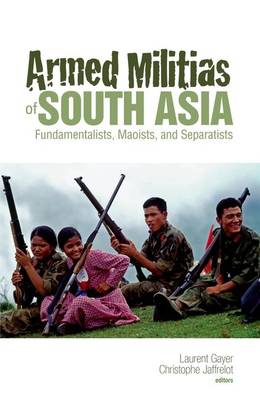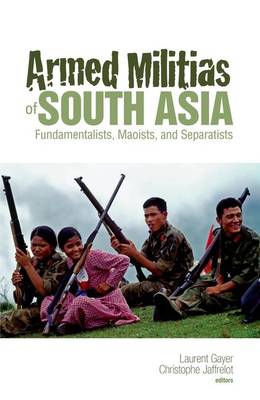
- Retrait gratuit dans votre magasin Club
- 7.000.000 titres dans notre catalogue
- Payer en toute sécurité
- Toujours un magasin près de chez vous
- Retrait gratuit dans votre magasin Club
- 7.000.0000 titres dans notre catalogue
- Payer en toute sécurité
- Toujours un magasin près de chez vous
Armed Militias of South Asia
Fundamentalists, Maoists and Separatists
Christophe Jaffrelot, Laurent Gayer
Livre relié | Anglais
72,95 €
+ 145 points
Description
There seems to be no end to the growing number of victims of civil war, terrorism, guerrilla warfare and military repression on the Indian subcontinent, despite the absence of interstate wars over the past ten years. These conflicts often involve armed paramilitary militias or insurgents of one sort or other, and it is their ideology, sociology and strategies that the contributors to this book investigate. Whether based on ideological motives--such as the Maoists and Naxalites in Nepal and India--or invested with a fundamentalist religious mission--the Hindu nationalist Bajrang Dal in India, the Sunni SSP in Pakistan, or Islamist militias in Bangladesh--all these movements use violence to exercise social control, challenge the authority of the state and impose their own particular worldview. Although they seek also to undermine the state, depriving it of the monopoly on legitimate violence that it supposedly holds, governments are equally adept at exploiting them to make them serve their own ends. For the authorities, these movements can be useful tools for their pursuit of both moral and social order. However delegating power to such groups for short term political gains can be an extremely risky enterprise, as demonstrated by Indira Gadhi's patronage of the Sikh militant group that later assassinated her. Armed Militas of South Asia is the first comprehensive book of its sort and will be required reading for all those interested in the politics of the subcontinent and Myanmar.
Spécifications
Parties prenantes
- Auteur(s) :
- Editeur:
Contenu
- Langue:
- Anglais
Caractéristiques
- EAN:
- 9780199326914
- Date de parution :
- 22-01-10
- Format:
- Livre relié
- Format numérique:
- Genaaid
- Dimensions :
- 148 mm x 224 mm
- Poids :
- 498 g

Les avis
Nous publions uniquement les avis qui respectent les conditions requises. Consultez nos conditions pour les avis.






